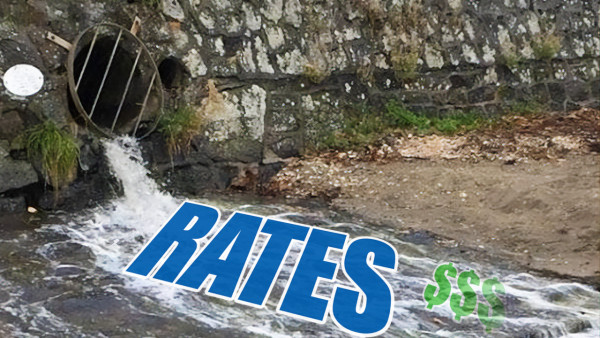Funding bureaucracy
27 April 2021

New Zealand is on a collision course between funding bureaucracy and actually getting something done. Across the country, urban and rural businesses are facing enormous rate increases, some by as much as 50%. Much of the funding increases are driven by environment measures, particularly freshwater and climate adaptation. In many cases, our cities are in desperate circumstances with waterways and beaches often closed for human activity due to failing fresh, storm and wastewater systems. The neglect of the past is catching up and catching up fast.
In rural New Zealand, despite what people have been told, the story is very different. There has not been the environmental neglect we have seen in many of our cities. Intergenerational ownership of rural land is a key driver to nurturing and sustaining the land and protecting the environment. As rural New Zealand moves to enhance further the quality of freshwater and make climate adaptations, I ask ‘who is going to pay for this?’ The answer is our growers and farmers. They are paying this out of what they earn for selling their produce. The problem they are facing is that their councils are coming along and asking for more money from rates to fund the council activities. The question has to be asked, ‘what for?’
Vegetable and fruit growers, through the Good Agriculture Practice (GAP) schemes that are run from Europe, are independently audited against pre-determined standards. These standards cover all activities and put in place the requirements for food safety, environmental sustainability and good employment practices. The standards are delivered through farm plans, with compliance with those standards being independently audited.
The results of those audits are available to the councils, while the standards are developed with the councils to meet their requirements. These standards will also be adapted to meet the Government’s climate and freshwater requirements, when these are finalised by the Government.
The responsibility for delivery rests with the grower, the person on the land. A failure to pass audit could result in distributors, exporters and the world’s supermarkets refusing to take the grower’s produce. This is the ultimate sanction – no income. This is a very cost effective and robust system for councils but more importantly, it is delivering what the environment needs.
As I’ve explained, New Zealand’s growers will deliver what councils and the Government require, and will pay for it themselves. So why are rural rates increasing? If it is to pay for the improvements so urgently needed in towns and cities, then that is simply not right. Equity demands that those who are responsible for the degradation of the environment should pay for it. Not those in the rural sector who are doing what is required for a sustainable environment, and growing the healthy food we need to survive.
Councils across the country are at present contemplating rate increases. In many cases, the councils are looking to the rural sector to fund more of their activities. What we are advocating for is for equity to apply, and that those responsible for the problems pay the increased rates, not those people and businesses that have already made such a significant and continued contribution to a sustainable environment.
Mike Chapman
Chief Executive
